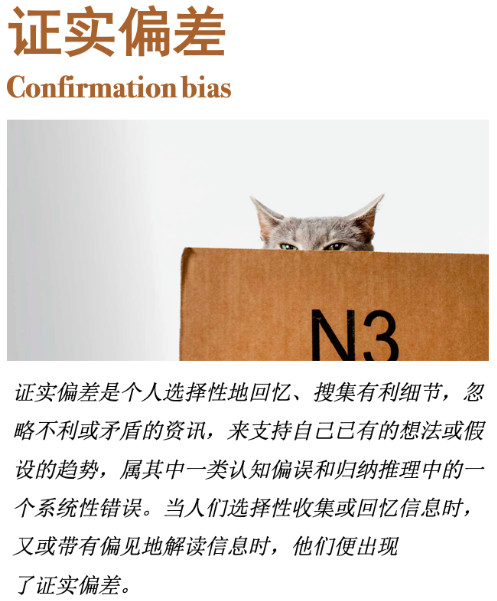
「释义」
证实偏差是个人选择性地回忆、搜集有利细节,忽略不利或矛盾的资讯,来支持自己已有的想法或假设的趋势,属其中一类认知偏误和归纳推理中的一个系统性错误。当人们选择性收集或回忆信息时,又或带有偏见地解读信息时,他们便出现了证实偏差。
这种偏差尤其显见于带有强烈情绪的问题和传统观念上。例如,人们面对情伤,大多难以割舍,会在反复的情绪中来回摆荡挣扎,过程中不断回顾并对自己给予合理的解释与交代,直到身心得到平衡安顿为止。
「应用场景」
最新研究显示,好奇心对组织、领导者和员工都大有裨益。
New research reveals a wide range of benefits for organizations, leaders, and employees.
决策失误减少。我在研究中发现,好奇心一旦被激发,我们就不会轻易受到证实偏差和刻板印象(做宽泛的判断,比如女性或少数群体不能成为优秀领导者)的影响。好奇心让我们从不同视角思考问题,所以会有以上积极作用。
Fewer decision-making errors.In my research I found that when our curiosity is triggered, we are less likely to fall prey to confirmation bias (looking for information that supports our beliefs rather than for evidence suggesting we are wrong) and to stereotyping people (making broad judgments, such as that women or minorities don’t make good leaders). Curiosity has these positive effects because it leads us to generate alternatives.
以上文字选自《哈佛商业评论》中文版2018年9月刊《好奇心的商业价值》
弗兰西斯卡·吉诺 | 文
马冰仑 丨编辑




